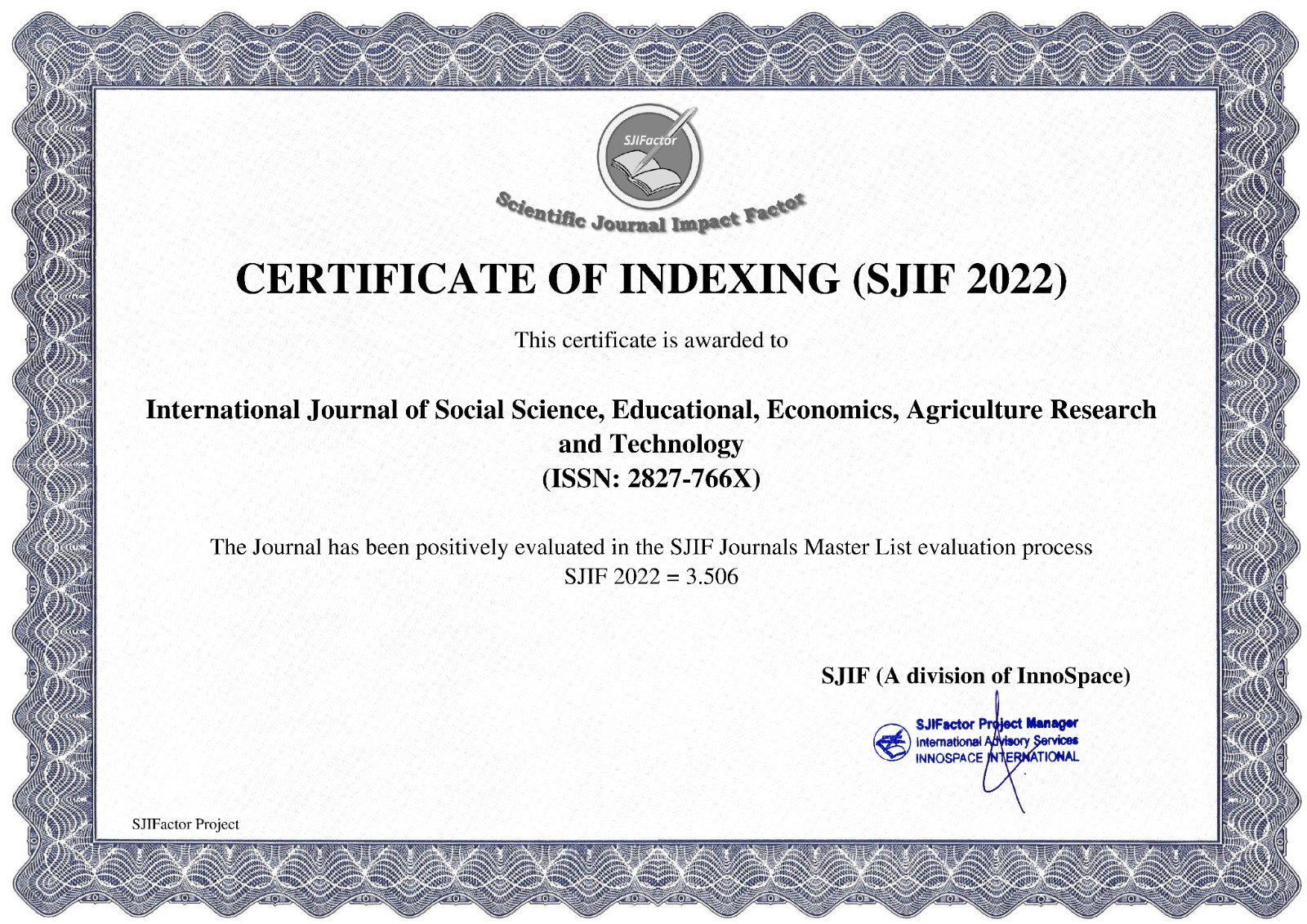THE EFFECT OF PRINCIPAL'S LEADERSHIP AND EDUCATIONAL PERFORMANCE ON IMPROVING THE QUALITY OF EDUCATION IN MTS BUSTANUL'ULUM GUPPI TEBING TINGGI CITY
Main Article Content
M. Alang Khairun Nizar
The research method used is a descriptive survey method that describes social phenomena by examining the influence of Principal Leadership and Educational Personnel Performance (X) on Education Quality Improvement (variable Y). This study uses quantitative analysis techniques through path analysis which is intended to determine the magnitude of the influence of the Principal Leadership and Education Personnel Performance variables on improving the quality of education at MTs Bustanul'Ulum GUPPI Tebing Tinggi City, either simultaneously or partially. The results showed that the Principal's Leadership and Educational Personnel Performance had an effect on the Quality Improvement of Graduates at MTs Bustanul'Ulum GUPPI Tebing Tinggi City. The Principal's Leadership Variables and the Performance of Education Personnel were tested in influencing the Quality Improvement of Graduates at MTs Bustanul'Ulum GUPPI Tebing Tinggi City: Based on the SPSS calculation, the Fcount value is 6,302. with a = 5%, dk in the numerator: k, dk in the denominator: n-k-1 (5%;2;41) the f table value is 3.23. From the description, it can be seen that F Count (6.302) > F Table (3.23), with a significance of 0.004 < 0.05, it can be concluded that the hypothesis is accepted. From the calculation results of the SPSS program, the t-count value is 0.592 with a = 5%, t table (5%; n-k = 42) the t-table value is 2.018. From the description, it can be seen that the value of tcount (0.592 ) < t table (2.018), as well as the significance value of 0.557 > 0.05, it can be concluded that the first hypothesis is rejected. This means that leadership does not affect the quality of education.From the calculation results of the SPSS program, the t-count value is 2.625 with a = 5%, t table (5%; n-k = 42) the t-table value is 2.018. From the description, it can be seen that the value of tcount (2.625) > t table (2.018), as well as the significance value of 0.012 <0.05, it can be concluded that the second hypothesis is accepted. This means that the performance of education personnel affects the quality of education.
Amir, N. (2014). Budaya Organisasi Sekolah. Visipena, 5(2), 132–139.
Dewi, R. V. K. (n.d.). KEBIJAKAN TENTANG PENGEMBANGAN PENDIDIKAN DI INDONESIA.
Isdaryanti, B., Rahman, M., Sukestiyarno, Y. L., Florentinus, T. S., & Widodo, W. (2018). Teachers’ performance in science learning management integrated with character education. Jurnal Pendidikan IPA Indonesia, 7(1), 9–15.
Mahmudi, B., & Nurhayati, E. (2015). The influence of board governance characteristics on intellectual capital performance (empirical study on listed banks in BEI 2008-2012). Review of Integrative Business and Economics Research, 4(1), 417.
Makmun, H. (2015). Kepemimpinan kepala sekolah dalam meningkatkan profesionalisme guru IPS di SMP Islam Jabung Kabupaten Malang. Universitas Islam Negeri Maulana Malik Ibrahim.
Moeheriono, M. (2005). PENGARUH PENDIDIKAN DAN PELATIHAN KEPEMIMPINAN TINGKAT III TERHADAP MOTIVASI KERJA, KARIER DAN KOMPETENSI PEGAWAI PEMERINTAH PROVINSI JAWA TIMUR. EKUITAS (Jurnal Ekonomi Dan Keuangan), 9(2), 217–242.
Mulyasa, E. (2004). Manajemen berbasis sekolah: konsep, strategi dan implementasi.
Samani, M. (1999). School Based Management: Strategi Pemberdayaan Sekolah dalam Kerangka Desentralisasi Pendidikan Menuju Pendidikan yang Berkualitas. Makalah Seminar, 23.
Sedarmayanti, S. (2020). The Strategy of Link and Match between Higher Education Quality and The Demand for The Need of Job Field to Produce Qualified Human Resources. Jurnal Wacana Kinerja: Kajian Praktis-Akademis Kinerja Dan Administrasi Pelayanan Publik, 5(3), 13–20.
Sedarmayanti, S., & Rahadian, N. (2018). Hubungan Budaya Kerja dan Lingkungan Kerja Terhadap Peningkatan Kinerja Pegawai Pada Lembaga Pendidikan Tinggi. Jurnal Ilmu Administrasi: Media Pengembangan Ilmu Dan Praktek Administrasi, 15(1), 63–77.
Siagian, S. P. (2002). Manajemen sumber daya manusia.
Siagian, S. P. (2006). Sistem informasi manajemen.
Suprayitno, H., Ratnasari, V., Saraswati, N., & Fajrinia, C. P. (2018). Sample Based Trip Length Distribution Quality based on χ^ 2 and Mean Absolute Error Value. IPTEK The Journal for Technology and Science, 29(1), 5–10.






















